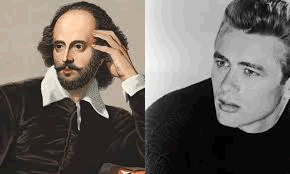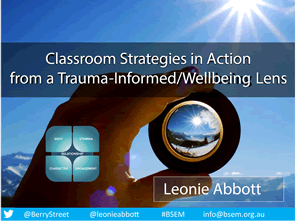 I believe poetry is essential to life. I am a full-time poet, so yes, I am biased. But I have seen way too many people and communities be changed by poetry over the past few years to see it any other way.
I believe poetry is essential to life. I am a full-time poet, so yes, I am biased. But I have seen way too many people and communities be changed by poetry over the past few years to see it any other way.
This is not because I think that we should all be writing sonnets in between emails and shopping lists. We mostly don’t have time for that, and too many words can get confusing. But I believe poetry is essential because it makes us consider how we use our language more and more. It pulls us closer to being true to our word and in turn, ourselves. It helps us heal and be heard and to say something we were scared to just moments before. And it is all fairly invisible in reality. For some reason when someone says “I am going to write a poem” the only difference between that and writing anything else is the considered and heightened nature of the intention put into the task at hand. Poetry has no real structure that it must adhere to; poets over time have work hard a long to try to break every rule known to man. But a poem is somehow subconsciously more urgent, important or powerful than all other ways we make speech.
And I say ‘speech’ intentionally. I believe that since we humans have been speaking poetry for much longer than we have been writing it, oral traditions are somehow more powerful, have more reach and nuance than the academic structures of a page poetry aficionado. This is not to say any one is better than the other, but as an artist I much prefer to perform my work to people in an immediate connection within a shared moment with an audience rather than just continuously publish books. And I think young people feel the same way, they want to experience the wonders of the performance. It is what made Shakespeare so incredible, and what gives his work so much life until today – his poetry was, more often than not, written to be performed.
Unfortunately ‘poetry’ has become a dirty word for young people all over the world. There can be no argument with this. Kids roll their eyes at it every single day. The dry, drab and lifeless poets and poems that are taught day in and day out have dug this incredible art form into a hole it is struggling to exit. This is not to say those poets or the teachers that love them have no value, but it is to say that young people have almost no connection whatsoever to the subject matter and the aesthetic being taught. In which case, something needs to be done. As a young Greek kid, growing up in Brisbane, in love with rap music and my own Greek heritage, I had no idea whatsoever I was to become a full-time poet one day. And I had no idea at all that some of the greatest poets of our modern times we to be the rappers I was listening to and some of the greatest poets in history were Greek. Nope, no idea at all. I was too busy avoiding the homework set for English class: to write a poem using Shakespearean language and being scolded for speaking slang in class. My teacher never told me that Shakespeare’s slang (of which he was an incessant user) was to become the English of the future, especially considering that there are hundreds of words we now use daily that find their roots in the absolute rebellious nature of Shakespeare’s work. He literally did not give a f*^k. If I knew that, of course, it would make me want to use my slang more, and challenge the linguistic status quo of the classroom. Which was way too dangerous for the year 2000 apparently.
There is a whole other essay that I could write about how and why this has happened – starting with the wrong people making decisions about what is and isn’t allowed to be taught to young people, and how the structures of an academic hierarchy quickly becomes exclusive, as opposed to inclusive of the cultures and orientations in the classroom. I digress. The bottom line is that teachers are dying for ways to breathe new life into poetry and have their own students believe in themselves as poets in their own rights. With more and more teachers asking themselves the questions of what exactly they can do to meet their students’ interests half-way as well as simply ‘get through’ the curriculum, spoken word or ‘slam’ poetry has become a godsend in the English department. Poets from cultural backgrounds relevant to their students, music video-esque YouTube channels and subject matters that make sense in a society that is constantly asking our young people difficult questions of identity and allegiance, spoken word is to today what rap was to me over a decade ago: raw, honest, fearless, and in love with language. In other words it is what all great poetry is – an attack of the senses that we only want more and more of.
Luckily it comes in so many shapes and sizes, there is something for everyone. I look at every child I work with as the last in a long line of poets. Every single young person I speak to, at some point has had a poet in their lineage; there is no doubt about that. And every single culture in the classroom has its own style, reason, context and history of poetry. From Chinese poet Libai who lived during the Tang Dynasty to the West African Griots traditions and Homer’s Illiad and Oddysey, we all have it in us. Even though I grew up being taught that only Shelley, Keats and Shakespeare were worth anything in terms of poetic currency in the world as we know it, now that I am a poet, so many more stories and compelling pieces of evidence come my way to explain why it is that I have become what I am. When I went to my Grandfather’s village on the island of Rhodes, Greece recently, a local man told me my poetry was no mistake or individual feat. He told me how there used to be men in our village who were known as the poets of the region and who would continuously respond only in rhyme to anybody who asked them anything at all. They only spoke in poetry: every time they opened their mouths it was with a rhyming couplet. He told me I’ve taken it from my DNA, and it all makes sense now.
In some way we all love language, whether it is in making a bad ‘Dad joke’ just to hear the kids moan over and over again or experiencing a wonderful memory again after listening to a favourite song, language helps us define what it is we are feeling and in turn, articulates upon the world exactly who it is that we are. We all need it to feel right. It is sad however that so many great poets and writers are going unrealized in the face of a predetermined idea of what our next poet laureate should be. And what they should be writing in order to fit within our ideas of what ‘the best poets’ once wrote. The chances are our next, rebellious, vulnerable and incredible story-teller is arriving to Australia on a boat that the government is hell-bent on returning home. Or is locked in a jail for being nothing more than an Aboriginal woman in a country that doesn’t want to listen. These are the stories that are being written by people who are brave enough to say “my story is relevant, even if everyone says it isn’t good enough”. These are the kinds of poets waiting in our classrooms, scared of making a mistake, but that have such great potential. And I know so many incredible teachers who feel the same; all we have to do is bring the spark of confidence and power to them to start a fire of language and expression. As one of my favourite writers, Arundati Roy once said: “There’s really no such thing as the ‘voiceless’. There are only the deliberately silenced, or the preferably unheard”.
Luka Lesson is former Australian Poetry Slam Champion and long-time poetry performer and educator both nationally and internationally. For bookings: www.youngaus.com.au


